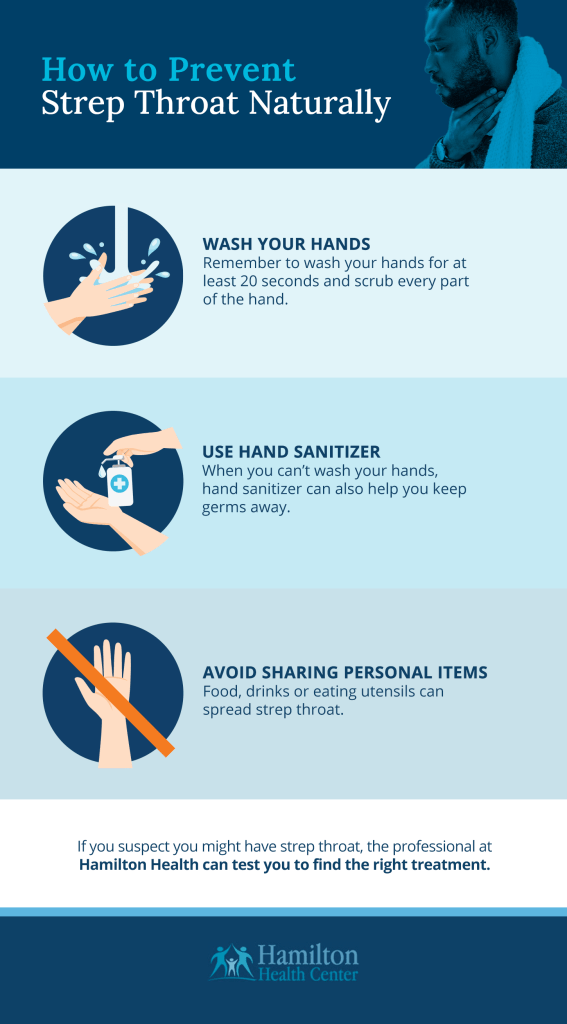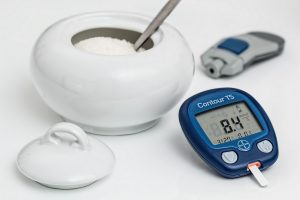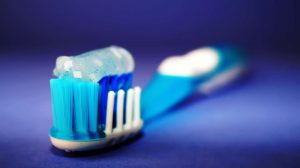Top Tips for Preventing Strep Throat
Strep throat has uncomfortable symptoms such as sore throat, fever and problems breathing or swallowing. The contagious bacteria Streptococcus pyogenes causes strep throat when it spreads to a person without the disease. You can reduce your chance of getting or spreading strep throat by following certain precautions. This guide will teach you how to prevent strep throat and what to do if you have it.

How to Prevent Strep Throat Naturally
Try the following strategies to reduce your family’s risk of getting strep throat:
- Wash your hands: Hand washing serves as one the best ways to prevent infections like strep throat. Remember to wash your hands for at least 20 seconds and scrub every part of the hand.
- Use hand sanitizer: When you don’t have access to soap and water, hand sanitizer can also help you keep germs away. Hand sanitizer often comes in travel-sized bottles that you can take anywhere.
- Avoid sharing personal items: Sharing food, drinks or eating utensils can spread strep throat bacteria even when neither person thinks they have it. Other items that go in the mouth like toothbrushes and pacifiers can also spread germs.
You can lower you or your child’s chance of getting strep throat by limiting your exposure to the Streptococcus pyogenes bacteria. Following these tips can help you avoid spreading strep throat and other infections at any time of the year.
Preventing the Spread of Strep Throat
If you or someone you love already has strep throat, you can take steps to avoid spreading it. You can protect others by:
- Taking antibiotics: If you get a strep throat diagnosis, your doctor will likely give you antibiotics to fight the infection. Remember that strep throat’s contagious period lasts for at least 24 hours after you start taking antibiotics.
- Keeping your environment clean: Surfaces like tabletops and doorknobs can host strep throat bacteria. Regularly wipe down these areas to prevent the spread of bacteria.
- Staying home from work or school: A person with strep throat stays contagious as long as they have symptoms. If you can, call in sick from work or school until you’ve taken antibiotics for at least 24 hours.
- Washing your hands frequently: Keeping your hands clean will reduce the spread of the strep throat bacteria. Follow the same directions as mentioned above for the best results.
Everyone has a part to play in reducing strep throat’s spread, including people who already have it.
How to Prevent Strep Throat When You Feel It Coming
Symptoms like a sore throat that lasts longer than 48 hours and small spots inside your mouth can both indicate strep throat. If these symptoms show up, you may already have the infection. Visit a doctor to get a rapid strep test and throat culture that can tell you if you have strep throat. The professionals at Hamilton Health can test you for strep throat and provide the right treatment.
Get Strep Throat Diagnosis and Treatment at Hamilton Health
At Hamilton Health, we offer patient-centered care to people regardless of health, economic or insurance status. To see a doctor for strep throat or another infection, call us at 717-232-9971 to schedule an appointment.
13 Must-Know Men’s Health Tips
 It’s essential to pay attention to your health. Life is busy, but that should never be an excuse for not prioritizing your wellness. Staying in tune with your well-being promotes a stable lifestyle, reduces risk factors and lowers the chances of medical emergencies.
It’s essential to pay attention to your health. Life is busy, but that should never be an excuse for not prioritizing your wellness. Staying in tune with your well-being promotes a stable lifestyle, reduces risk factors and lowers the chances of medical emergencies.
Men of all ages can benefit from the following tips.
1. Search for a Doctor
For many men, an unhealthy lifestyle derives from the lack of regularly seeing a doctor or health care provider. Finding a doctor is an easy task thanks to resources available online. With a quick search, you can find health care professionals in your area who are accepting new patients.
You want to find and establish trust with your doctor. These health professionals let you know of areas of improvement in your everyday life and catch warning signs of health concerns that could harm you.
2. Visit Your Doctor Regularly
Whether you just found your doctor or already have one, visit them regularly. Getting an annual physical examination is the best way to prevent an illness before it occurs. Stop canceling or postponing your doctor’s appointments.
Things to ask your doctor about include:
- Blood tests
- Supplements
- Blood pressure
- Cholesterol levels
- Alcohol consumption
- Weight management
- Food choices
Always remember your health is a top priority, and visiting your doctor is a great preventive measure for men’s health
3. Learn From Your Doctor and Make a Change
Your doctor is the key to a healthier life. Over time, these professionals know your lifestyle as well as you do. Listen to what your doctor has to say during routine visits, and be sure to make any necessary changes if applicable.
Make it your goal to use doctor visits to get informed about health topics. Also, learn to discuss symptoms with your doctor rather than ignoring them. A proper diagnosis can promote a healthier life even with a health condition.
4. Monitor Your Diet
The foods you eat directly fuel your body. Cutting back on junk foods, sugars and carbohydrates makes a difference when you replace them with fruits and vegetables.
The best way to keep a healthy diet is to give yourself some variety daily. Eating fruits, vegetables, whole grains and fiber helps you avoid heart disease, diabetes and cancer. A healthy diet can reduce high blood pressure and belly fat.
5. Make Time for Exercise
Getting activity in your day prolongs your overall well-being. Making time for 30 minutes of physical activity during most days of the week increases men’s physical and mental health. Something as simple as an evening walk could be the lifestyle change you need.
Monitoring your progress is exciting and encouraging. There is nothing wrong with starting slow and gradually increasing your workout time and intensity as you improve. Strength training is also a great addition to your daily routine.
You will see the most positive health changes by varying your workouts between aerobic exercise, stretching and strength training. Incorporating all three types can improve heart health, strengthen muscles and maintain flexibility.
6. Get Enough Sleep
Sleeping between seven and nine hours each night keeps you in your best shape. Drinking caffeine instead of getting enough sleep leads to a toxic cycle that can deteriorate your health, so always give yourself time to rest.
7. Analyze Mental Health
If you have a family history of mental illness, alcohol abuse or suicide, speaking to your doctor about warning signs and symptoms is essential. A positive outlook on your life comes from wellness inside and out. Asking for help when needed is the first step toward improving mental health.
8. Maintain a Healthy Weight
Keeping extra weight off reduces your risk of heart attack, heart disease, cardiovascular disease or stroke. By exercising regularly and sticking to portion recommendations, your heart has to work less during the day and while you sleep. You can use body mass index and waist circumference to estimate your weight status.
9. Stop Bad Health Habits
While adding positive changes like exercise and quality sleep to your lifestyle, you should consider current practices damaging your health. Smoking and vaping are the leading causes of preventable death in the United States. This practice can cause heart disease and cancer.
Alcohol and high-risk sexual behaviors can also harm your health. Excessive drinking may lead to cancer and heart issues. Unsafe sexual behaviors like unprotected sex and multiple sexual partners can increase the chances of sexually transmitted infections.
10. Stay Ready for Sex
A lack of erection often points to underlying health issues. When you notice problems getting or keeping an erection more than 25% of the time, you should take note. This symptom may point to emotional problems, diseases or other physical causes like overconsumption of alcohol.
11. Take Care of Your Prostate
The prostate gland grows as you age, leading to urinary symptoms like passing more urine throughout the day or having less urine flow. When you experience these issues, talk to your doctor about lifestyle changes like urinating when you get the urge, drinking fluids steadily throughout the day and exercising regularly.
12. Consider Your Age Group
No matter your age, you should maintain a healthy lifestyle with your eating, sleeping and exercise habits. These habits may look different depending on your age. Men in their 50s or above should focus more on low-impact exercise, while younger men can focus more on strength training.
Depending on your age group, you should also screen for specific medical conditions with your doctor. For example, men in their 20s should screen for high cholesterol and testicular cancer. Older men in their 50s or above should look for those health concerns and additional ones like colon cancer, diabetes, heart disease and thyroid disease.
13. Prioritize Enjoyment
As you focus on healthy habits, remember to prioritize enjoyment by doing something for yourself daily. These activities could include listening to an audiobook, doing yoga or meditating. When you do these things every day, you can experience better mental health and improve recovery from substance use disorders.
Schedule an Appointment With Hamilton Health Center
If you desire to improve your health and want to know how to get started, it’s time to connect with Hamilton Health Center. By setting up an appointment, you can find the proper health care to better your lifestyle.
Find your new home for overall health and call Hamilton Health Center today.
Self-Breast Exam Tips
 You may have heard there are many advantages of performing breast self-examinations. Women sometimes detect lumps that prompt their physicians to send them for mammograms, which can uncover signs of breast cancer.
You may have heard there are many advantages of performing breast self-examinations. Women sometimes detect lumps that prompt their physicians to send them for mammograms, which can uncover signs of breast cancer.
You should also perform breast self-exams for other reasons. Breast exams help you become familiar with your breasts so you can report any changes in them to your physician. Most changes are benign, but occasionally there is a more serious reason for them.
If you have never self-examined your breasts, you may be unsure how to begin. Follow these exam tips to give yourself an effective breast self-exam.
Tips for Breast Self-Exams
Here are a few ways you can learn to do your examinations quickly, thoroughly and effectively:
- Ask your doctor or healthcare provider to show you how to do it: Talk to them about what they recommend for their patients and to explain what you should be looking for. While online guides can be helpful, speaking to a breast specialist is a great way to ensure effective examination.
- Time your exams to your menstrual cycle: Choose a time of the month when your breasts are less tender. Many women do this during the week after their period. If you examine your breasts at the same time every month it’ll be easier to detect breast lumps or breast changes.
- Look in the mirror before you start: Begin by examining your breasts to get a feel for what they look like. Search for dimpling and puckering, and note the shape and size of the breasts. Examine them with your hands raised as well and look beneath each breast to judge their symmetry. This will help you identify changes in the future.
- Do the physical exam standing up or in the shower: The tissue thins out when you lay down. You will also find soaping your fingers helps in the shower.
- Use the pads of your three middle fingers: Apply different levels of pressure and do it in a constant pattern to assure you do not miss any parts. For instance, you might do it circularly along with light pressure.
Women with disabilities that make it difficult to do any of this should ask their doctor for tips on how to proceed.
What Are Normal Lumps in the Breast?
All breasts have lumps. You will become familiar with these as you perform your exams regularly. Most lumps are normal and do not require a trip to the doctor. Abnormalities in the breast may include very hard lumps near your underarm, and you should inform your physician immediately.
Other changes you should notify your doctor about include:
- Sores or rashes on the breast
- Newly inverted nipples, pointing in rather than out
- Swelling or pain in the breast
- Any irregular breast tissue
When to Start Self-Breast Exams
Doctors generally recommend that women begin performing self-breast exams in their early 20s. Teenage girls’ breasts are still growing, and they change a lot during this process. It’s also extremely rare for a young girl to develop breast cancer. For those reasons, physicians say it is unnecessary to perform self-exams until you get older and your body has finished going through changes.
Still not sure how to perform a self-breast exam or want some extra guidance? Hamilton Health offers patient-centered health care at our state-of-the-art facility. Make an appointment with us today to discuss your breast health and breast condition.
More Resources for Women
5 Breastfeeding Tips for New Mothers
 New mothers have so much to learn. You love your baby and want to take care of them, but all the information out there can be confusing. Many mothers want to breastfeed their babies to give them good nutrition and bond with them. These breastfeeding tips and tricks for first-time mothers will help you and your baby stay happy and healthy.
New mothers have so much to learn. You love your baby and want to take care of them, but all the information out there can be confusing. Many mothers want to breastfeed their babies to give them good nutrition and bond with them. These breastfeeding tips and tricks for first-time mothers will help you and your baby stay happy and healthy.
1. Begin Breastfeeding as Soon as Possible
If you can, try to breastfeed your baby right after birth. During the first hour after birth, babies are more interested in breastfeeding than usual. Cuddle your baby on your chest until they finish feeding. You create colostrum, the first kind of breast milk, at the beginning of your baby’s life. Breastfeeding early lets your baby get more of this nutritious milk. The skin-to-skin touch will also reduce your and your baby’s stress after delivery.
2. Let Your Baby Tell You When They’re Hungry
Babies show their hunger in many ways besides crying. They have a rooting reflex, where they turn towards touch and open their mouths when hungry. Your baby may also start sucking and licking their lips. Every baby has unique feeding times, and they will show these signs when they want to feed. Some babies want to feed a little bit many times a day, while other babies like a few long feedings. As your baby grows, they will have growth spurts where they want to feed more often.
3. Make Sure Your Little One Latches the Right Way
Correct latching makes breastfeeding less painful and helps your baby get more nutrition. Latching is the way that your baby sucks on your breast. When your baby breastfeeds, they should not hurt your nipple. They should suck on both your nipple and the areola, the darker skin around your nipple. Bring your baby to your full breast, and gently move their lips if they need help.
4. Wait for Pacifier Time
Your baby has a natural need for sucking that encourages them to breastfeed. A pacifier helps them suck often and feel happy. However, if they get in the habit of sucking on a pacifier instead of your breast, they might not want to breastfeed. Let them build a habit of breastfeeding for a few weeks before giving them a pacifier.
5. Take Care of Yourself
Your health is as important as your baby’s health. Remember to get enough sleep and to eat a healthy diet. Ask for help with chores and other tasks when you first start taking care of your little one. If your nipples get dry and cracked, try rubbing a few drops of breast milk on them after a feeding. You can also use a cream that has lanolin in it to prevent cracking.
Let Us Help You Have a Healthy Start
At Hamilton Health Center, we want to help all first-time mothers and babies stay healthy. We give care to everyone, even if you have a low income or don’t speak English as your first language. Schedule an appointment with us by calling (717) 232-9971 today.
More Resources for Women
Top Men’s Health Issues
To live long and remain healthy, adult males must pay close attention to specific men’s health issues. That’s why we’ve researched the top men’s health problems, so you can enjoy good health now and in your later years. With regular medical checkups and some lifestyle changes, you should be able to reduce the risk of developing the top men’s health issues or learn how to manage the condition.
Contact Us Today 717-232-9971
Heart-Related Diseases
Heart attack, stroke and diseases affecting the arteries are among the top 10 men’s health issues worldwide. These ailments are collectively known as cardiovascular diseases.
In the U.S., about 697,000 people die of heart-related diseases, and over half are men. So, you need to be aware that:
- More than one out of four adult men are at risk of dying from cardiovascular disease.
- African American people are at higher risk for high blood pressure.
- High blood pressure occurs more often in men over 45 years of age.
To prevent death from cardiovascular disease, you must have a medical checkup at least once every six months at a one-stop medical center like Hamilton Health. You should also monitor your blood pressure and eat lots of fruits and vegetables.
Lung Cancer
Lung cancer is a terrible disease because it can spread rapidly before you notice its symptoms. It’s difficult to treat or cure this disease when it’s discovered.
Lung cancer can kill within a year after it’s diagnosed, and more people die from lung cancer than any other type. Smoking is the leading cause of lung cancer in men, causing about nine out of 10 cases. While the number of men smoking has dropped, it’s still a leading cause of death among men.
Unfortunately, there is no early detection test for lung cancer. The best way to avoid the disease is to stop smoking. If you are or have ever been a chronic smoker, visit your doctor for a medical examination.
COPD and Other Respiratory Diseases
Chronic obstructive pulmonary disease (COPD) refers to several conditions — including emphysema and chronic bronchitis — that cause breathing problems or block airflow. This disease often causes symptoms like frequent coughing, excess phlegm production, trouble taking a deep breath and shortness of breath. More than 15 million Americans struggle with the disease, and it is more common in former smokers and people who are multiracial and non-Hispanic.
Prostate Cancer
Only men can develop this ailment because women don’t have prostate glands. The prostate is a small gland located behind the penis. It produces fluids that are important for releasing semen during sexual intercourse.
As males get older, the prostate easily gets enlarged. Nearly 200,000 men develop this disease in the U.S. every year. This cancer is the most common type men have.
Not all cases of prostate cancer result in death. So, as you get older, it’s essential to visit a medical center with the facilities to detect the exact type of cancer you may be at risk of developing.
Liver Disease
Liver disease manifests in several ways, including viral hepatitis, liver cancer or alcoholic liver disease. People with liver disease have a difficult time digesting food and disposing of toxic substances. The body also shows symptoms like swollen abdomen, yellowing of the skin and changing stool.
Contact Us Today 717-232-9971
Stroke
A stroke happens when arteries in the brain become blocked or rupture. Either of these events prevents the cells from getting oxygen, causing parts of the brain to die. This occurrence is a leading cause of death and disability for adults. Medical conditions like high blood pressure, diabetes and obesity can increase stroke risk. Certain behaviors like tobacco and alcohol use may also increase your risk.
Erectile Dysfunction
Erectile dysfunction (ED) — or impotence — occurs when a man cannot get or maintain an erection. It occurs occasionally in men during stressful events, but if it happens often, it can be a sign of a severe health problem.
Erectile dysfunction may be caused by atherosclerosis, which is the hardening of arteries. ED is a sign that blood vessels aren’t in good shape. Many doctors see erectile dysfunction as a warning sign of an upcoming cardiovascular or heart disease. If you notice you have ED, please visit a qualified doctor immediately.
Sexually Transmitted Infections
Estimates from the Centers for Disease Control and Prevention say one in five Americans has a sexually transmitted infection (STI). These diseases are also more common among men than women.
You can lower your risks through vaccines and protected sex. Men who are sexually active and have sex with other men should get tested for infections at least once yearly to determine whether they need treatment.
Diabetes
Diabetes occurs when the glucose in your blood becomes very high. It happens when the pancreas does not produce enough insulin, or the body does not respond to it. This situation leads to excess glucose in the blood.
Two signs of diabetes are the frequent urge to urinate and excessive thirst. Diabetes develops slowly, and most men aren’t aware of it until they see the first two major signs.
Excess glucose in the blood can cause other diseases, including strokes, heart attacks and blindness. This disease is also the leading cause of kidney failure and lower limb amputations. Obese and overweight men in the U.S. are more likely to develop diabetes. To prevent this disease, you need at least 30 minutes of exercise daily, and you should eat a diet with a balanced combination of macronutrients.
COVID-19
When men contract COVID-19, the effects on health are often more serious than for women. The disease is more likely to cause severe symptoms and death in men. The rise of several vaccines can lower the chances of contracting the disease or enduring severe symptoms.
Unintentional Injuries
Injuries from falls, motor accidents, poisoning and other unintended events are the fourth most common cause of death in the United States. Overall, men are more likely to die from such events than women. While some unintentional injuries are unavoidable, you can do certain things to lower your risk, like following proper safety measures and going to the emergency room when injured before it becomes more serious.
Contact Us Today 717-232-9971
Depression
While statistics show depression is slightly higher among females, depression is still quite common among males, with about 6% of men experiencing major depressive episodes yearly.
Some men go undiagnosed because the condition manifests in different symptoms, like anger and aggressiveness, rather than sadness. Talking to a medical provider can guide you toward the help you need when struggling with this condition.
Take Steps to Address the Top Men’s Health Threats Early
You can find medical treatment regardless of your financial situation. If you’ve observed any signs of the issues highlighted above, please call us now to book an appointment with a doctor at Hamilton Health. We offer help to all men who need medical assistance, including low-income earners and those without health insurance.
How to Manage Diabetes
Managing Diabetes
In honor of Defeat Diabetes Month (April 2018), we’d like to offer some tips for those living with Type I and Type II Diabetes.
When you have an illness like diabetes, it can be hard to accept that there’s currently no permanent medical cure for the disease. There are two major types of diabetes. With type 1 diabetes, the body doesn’t produce insulin. With type 2 diabetes, the body neither produces nor utilizes insulin well.
If you’re wondering how to fix diabetes now that you have a sugar problem, here are some tips that can teach you how to manage type I and type II diabetes.
How to Manage Type 1 Diabetes
Managing type 1 diabetes involves the following:
Taking Insulin
Anyone with type 1 diabetes must take insulin for life. Unfortunately, insulin cannot be received through oral tablets. Since the stomach enzymes will break it down, you must receive it through an insulin pump or via injections.
Doing Regular Blood Sugar Monitoring
You need to monitor and keep a record of your blood sugar for a minimum of four times daily. The American Diabetes Association recommends that you monitor your blood sugar before snacks or meals, just before going to bed and before doing any workout or driving.
Eating Health Boosting Foods
While there’s no real diabetic diet, you need to base your daily diet on highly nutritious foods rich in fiber and low in fat, such as whole grains, vegetables and fruits. Your dietitian will usually suggest you consume fewer refined carbohydrates like sweets and white bread, as well as fewer animal products.
You need to constantly count the number of carbohydrates in the foods you consume so you can use this measure to determine the amount of insulin you’ll require afterward. Consult our experienced dietitian now to help you create a new meal plan that will satisfy your needs.
Maintaining an Exercise Routine for a Healthy Weight
First, consult your doctor to determine if it’s OK to start doing regular exercise. Then, select a few activities like swimming, walking or jogging, and include them in your daily routine. Strive for at least 20 to 25 minutes of aerobic exercise per day, and avoid going more than two days without exercise.
How to Manage Type 2 Diabetes
The management of this kind of diabetes involves the following:
Eating a Healthy Diet
Base your diet on foods that are high in fiber and low in fat, such as whole grains, vegetables and fruits. Eat fewer animal products and refined carbs. Also, low glycemic-index foods will help you achieve stable blood sugar levels.
Doing Regular Exercise
With the consent of your doctor, you should start a daily exercise program. Activities like cycling, walking, swimming and running could help you make physical activity a part of your daily routine. You should do aerobic exercise for about half an hour daily, five days a week.
Monitoring Blood Sugar
Depending on the type of treatment plan you’re on, you need to monitor your blood sugar at least twice daily. If you’re taking insulin, you need to do this several times a day. Ask your doctor to state the number of times you should monitor your blood sugar daily.
Taking Diabetes Medication/Insulin Therapy
Some patients can achieve their desired blood sugar levels with improvements in their diet and exercise only, while others also need insulin therapy and diabetes medications. The severity of your condition will determine which form of therapy is best.
We Can Help
At Hamilton Healthcare, we offer a one-stop health care solution for everyone. If you’re living with diabetes, we can provide all the information, care, medication and counseling you need to live a healthy life. We’re waiting to help you. Give us a call at 717-232-9971 now.
View More Helpful Resources
Learn How to Prevent HIV/AIDS
HIV and African Americans
Recent statistics from the CDC on HIV prevention show that African Americans have a greater proportion of new HIV/AIDS diagnoses than other racial/ethnic groups. In 2015, African Americans had 45 percent of HIV diagnoses.
The report further revealed that:
- In the U.S., 17,670 of those diagnosed with HIV were African Americans.

- Over half (58 percent) of new African American HIV cases were bisexual or gay men.
- 38 percent of African American men who had sex with men (MSM) were between the ages of 13 and 24 years.
- 8,702 (48 percent) of people diagnosed with AIDS were African Americans.
- The total number of African American women diagnosed with HIV in 2015 fell by 42 percent.
- In 2015, the HIV diagnoses among African American women was over 4,500.
- The number of HIV cases among African American MSM increased by 22 percent.
In different ways, the African American population has had a greater increase in HIV cases than all other major ethnic groups in the U.S. This means there are more deaths caused by HIV/AIDS among this group. Unfortunately, many black children are becoming fatherless and many women are becoming widows. The future of the children of such men will be adversely affected by the rise in HIV cases because their fathers and mothers will not be able to provide adequately for their needs due to sickness or untimely death. As we observe National Black HIV/AIDS Awareness Day, we’d like to share some suggestions for a healthy and safe sex life.
Ways to Prevent HIV/AIDS
There’s an urgent need to focus on how to prevent HIV/AIDS among the African American community. As an African American, here are two things you can do to ensure you don’t get infected or spread the virus.
Get Tested
Make it a point of duty to go for an HIV test at least twice a year. You don’t need to be afraid of asking your doctor, “Do I have AIDS?” There are no stigmas attached to this and early detection can help you begin taking appropriate medication to prevent untimely death.
Use Condoms
To prevent HIV infection, you need to practice safe sex. Discuss with your partner and assess their awareness. Ask questions like:
- “What is HIV?”
- “Do you know your status?”
- “Do you mind using a condom?”
Use a condom each time you have sex. Using condoms correctly can help you prevent the transmission of HIV and STDs through blood, seminal, vaginal or rectal fluids.
Sterilize Injection Equipment and Don’t Share With Others
Never share injection instruments such as needles or syringes with anyone and make sure you only receive sterilized injections. After sexual relations, sharing drug syringes and needles with another person who has HIV is the most common way African Americans contract HIV. Sharing needles allows HIV to spread through blood contact.
Ways to Treat HIV/AIDS
- Take Medicine: HIV medication may be used to diminish the risk of HIV infection shortly after exposure to the virus. This type of medication is known as post-exposure prophylaxis (PEP). PEP works after a person has had sex without using a condom with an infected partner. To be effective, it must be taken within 72 hours after exposure. This medication needs to be taken for about four weeks to be fully effective.
Similarly, women infected with HIV can take medicine to prevent transmitting the disease to their unborn child. The newborn child will also receive HIV medication for about four to six weeks after birth. This medicine will reduce the chances of infecting the baby with the virus in utero. - Use Condoms: To prevent your partner from getting infected with HIV, you must use a condom correctly each time you have sex. Using condoms the prescribed way will prevent the transfer of HIV infection and other sexually transmitted diseases each time you have vaginal, anal or oral sex. It will prevent the mixing of vaginal fluids, rectal fluids, pre-seminal fluids, semen or blood, which allow the spread of HIV.
Ask Us for Help!
At Hamilton Healthcare, we offer HIV testing and counseling. We’re a Federal Qualified Health Center and we don’t discriminate against anyone based on sexual orientation. So, we encourage you to be open about your needs and ask all the questions you wish. To get more information about HIV/AIDS prevention and treatment, give us a call at (717) 232-9971 today.
View More STD Resources
How to Keep Your Kid’s Teeth Clean
Children’s Dental Care
 As soon as the first tooth appears, parents should start thinking about their infant’s dental hygiene. As they get older, parents should teach their children how to maintain healthy teeth.
As soon as the first tooth appears, parents should start thinking about their infant’s dental hygiene. As they get older, parents should teach their children how to maintain healthy teeth.
Good oral hygiene is critical to your child’s overall well-being. Gum disease is the leading risk factor for heart disease, diabetes and other conditions. Whether it’s to maintain a great smile or prevent disease, follow the tips below to keep your kid’s teeth in good shape. In celebration of National Children’s Dental Health Month (February 2018), we’d like to share some tips for you to try with your family.
Tips To Try
Use Fluoride
Once the baby grows teeth, start brushing them using an infant toothbrush. Make sure to use toothpaste that has a bit of fluoride. Brush using a very small amount. Fluoride strengthens your kid’s tooth enamel and helps repair any signs of damage to the teeth. Buy fluoride toothpaste that has the ADA (American Dental Association) seal of approval.
If you’re using infant toothpaste with no fluoride, still use a tiny amount, because you want to minimize how much toothpaste they swallow.
Brush 2 Minutes, 2 Times a Day
Two minutes is how long your kids should brush their teeth, two times a day. You can make it fun for the kids by using a timer. Think of it as splitting the child’s mouth into four portions: top-right, top-left, bottom-right and bottom-left. Then, let your kid brush each portion for around 30 seconds.
Floss Regularly
The earlier you can teach your kids to floss, the better. It’s good to start once they grow two teeth that touch each other — usually at the age of two. Begin with small interdental brushes. These will help your kid learn the movements of brushing in and out of teeth to help prevent the build-up of plaque.
Show Them How To
Kids learn by watching, so allow them to watch you brush. Make sure you’re brushing correctly in a circular motion on the teeth. Don’t use water to rinse your mouth. Spit out the toothpaste, but don’t use water, as you’ll be washing out valuable fluoride. It’s important that you supervise your kid as they brush until they reach the age of seven.
Make Dental Appointments Fun
Never instill fear in your kid about visiting the dentist. The dentist should inspect your baby’s teeth from an early age, because it will help them understand everything that’s going on. Dental check-ups should be done every six months for kids. Don’t forget to talk to your dentist about fluoride use — especially after the age of two.
Feed Them Low Sugar Food
Tooth decay is one of the leading causes of children’s hospital admissions before the age of nine, and sugar is usually the main culprit. Fizzy drinks contain large doses of sugar and acids that erode the surfaces of teeth. Never give your kids sugary drinks in baby bottles, because the sugar stays in contact with the teeth for longer, causing dental decay. Feed them low-sugar foods like milk from 12 months to 2 years of age.
Come to Us!
When you need access to comprehensive, affordable family dental services, contact Hamilton Healthcare Center. We’re a multilingual, multicultural, family-centered medical home. If you’ve been asking yourself, “Where can I find a kids’ dentist near me?” then you have come to the right place. Call us at (717) 232-9971 today.





